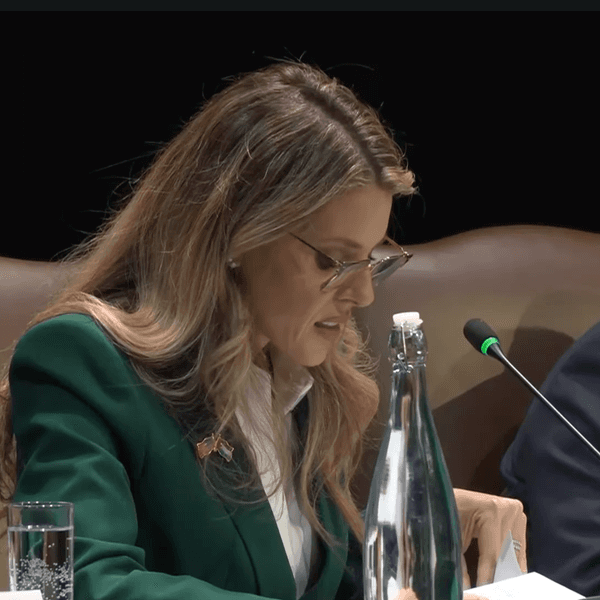The nearer to the church, the further from God.
-- John Heywood, Be merry friends (1580)
Here is a question that since November 3, 2015, is being asked by (a) children under 18 years of age who want to be baptized as Mormons but are living with parents in a same-gender relationship and (b) Mormons who are in same-gender relationships and fear excommunication because of the rule change: is it necessary to address the issue now or can it be addressed after death? The reason for the recent interest in this comes about because of changes to LDS Handbook 1 Document 2 that were promulgated November 3, 2015.
The Handbook adds a paragraph 16.13 that says a "natural or adopted child of a parent living in a same-gender relationship, whether the couple is married or cohabiting, may not receive a name and a blessing." (A name is bestowed through baptism.) The prohibition may be removed when the child attains "legal age," commits to live the teachings and doctrine of the Church, disavows the practice of same-gender cohabitation and marriage and doesn't live with a parent who "has lived or currently lives in a same-gender cohabitation relationship or marriage." The Handbook has also been amended to describe what sorts of serious transgressions MAY result in the convening of a disciplinary council that can, among other things, excommunicate a church member. Serious transgressions include "attempted murder, forcible rape, sexual abuse . . . homosexual relations (especially sexual cohabitation), deliberate abandonment of family responsibilities . . . ." The new rule goes on to say that a disciplinary council is MANDATORY in cases of "apostasy" and "apostasy" includes being in a "same-gender marriage." (It will probably surprise some same sex couples to learn that their misconduct is on the same level as forcible rape and other enumerated offenses.) The good news for those who wonder whether these new rules will affect them permanently is, they needn't worry. Here's why.
In 1994 the world learned that the Mormons posthumously baptized, among others, 380,000 victims of the holocaust together with Adolph Hitler, the man responsible for the 380,000 being eligible for posthumous baptisms. The baptisms occurred in a ceremony known as the "Baptism of the Dead." During that ceremony people who are not dead, known as "proxies", stand in for people who are dead. The proxies give the dead folk the opportunity to become what might be called "late blooming Mormons" although that is my description and not the church's. They are baptized posthumously and as a result, if they are already in heaven when the ceremony is concluded, they can presumably check out the accommodations and decide if the Mormon digs are better than the digs they were in before being made members of the Church of Jesus Christ of the Latter Day Saints. Among the folks who have been beneficiaries of this practice, in addition to Adolph Hitler, are Anne Frank, Sigmund Freud and David Ben-Gurion, together with hundreds of thousands of non-Jews.
It is obvious that those acting as proxies for the dead in hundreds of thousands of posthumous baptisms, have no way of determining whether or not the dead people being baptized were openly and gaily married or were children of gay parents who refused to disavow their parents' life styles. These people will certainly be baptized posthumously along with thousands of others and will enjoy the same heavenly benefits as those who were baptized while alive. For readers who do not take comfort in that thought, however, there is another reason they should not be completely despondent. It is found in the history of the Church of Jesus Christ of the Latter Day Saints.
For the first 148 years of the church's existence, black males were banned from the priesthood because they were black. That all changed in 1978. It was then that a letter was sent to all Mormons from the president of the Church in which he stated that "we [the first Presidency and the Quorum of the Twelve Apostles] have pleaded long and earnestly in behalf of these, our faithful brethren, spending many hours in the Upper Room of the Temple supplicating the Lord for divine guidance. He has heard our prayers, and by revelation has confirmed that the long-promised day has come when every faithful, worthy man in the Church [irrespective of race or color] may receive the priesthood. . . ."
Although it is too soon to hope that God will decide it's OK for gay people to marry or enjoy same sex relationships since he just told the First Presidency and the Quorum of the Twelve Apostles that it was not, I have confidence that He will, upon sober reflection, realize that He made a mistake when talking to the First Presidency and the Quorum since it makes Him look really silly. It was He, after all, who made gay people gay. He would not have done so had He not wanted them to enjoy life's pleasures as fully as heterosexuals can. Nonetheless, until God realizes He made a mistake and lets the higher ups in the church know, deciding to not worry about the present but to await the benefits bestowed by posthumous baptism seems to be the best bet for gay Mormons and children of gay Mormon parents. Either that or join a church that believes in both God and tolerance.



